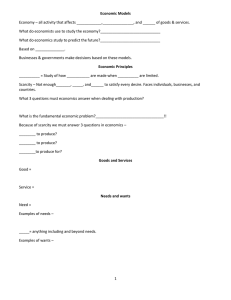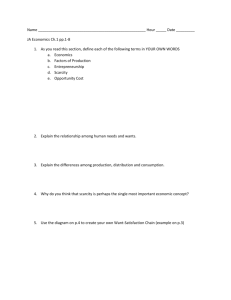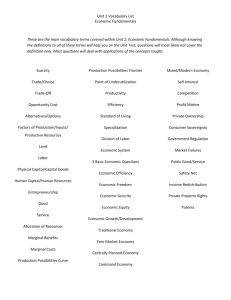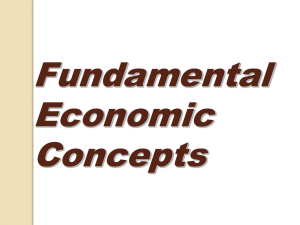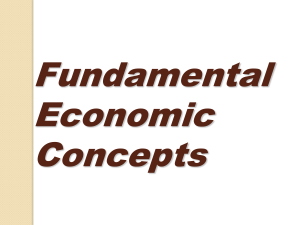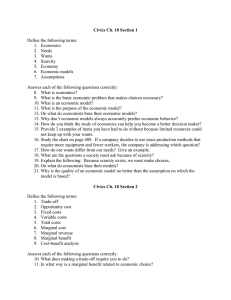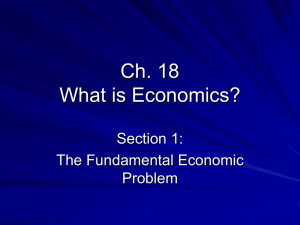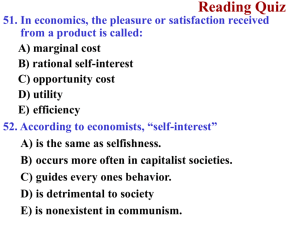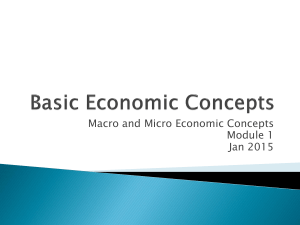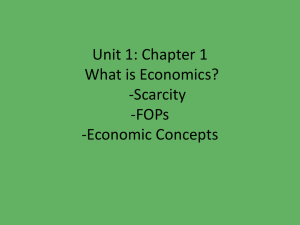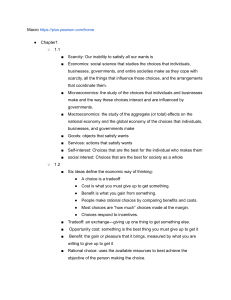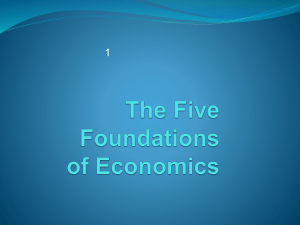The Economic Way of Thinking
advertisement
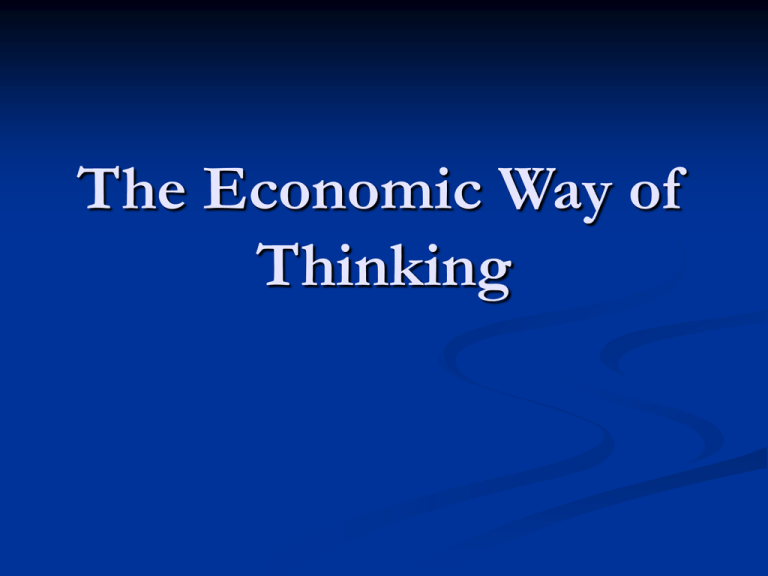
The Economic Way of Thinking What is Economics about? A. how people make choices B. First principle of Economics 1. people have unlimited wants and desires C. D. Second principle of Economics 1. people live in a world of limited resources Third principle of Economics 1. given the above, people have to make choices II. The Economic Problem (question to be answered) A. What goods and services should be produce? B. How should goods and services be produced? C. Who should get the goods and services produced? III. Scarcity and Choice A. Resources can only be used for one purpose at a time B. Scarcity requires that choices be made C. The cost of any good, service, or activity is the value of what must be given up to obtain it (opportunity cost) 1. Example: the opportunity cost of good grades is the value which could have been received by spending time with family and friends. IV. Resources (also known as factors of production, sometimes referred to as inputs) A. land 1. anything fixed – natural resources a. forests b. land c. minerals d. oceans e. wildlife f. oil B. labor 1. physical and mental talent a. knowledge and skills b. innovation c. ingenuity C. Capital 1. something physical to aid production a. tools b. equipment c. factories d. transportation e. educated/trained labor force D. Entrepreneurship 1. special kind of human resource that provides four important functions a. combines resources needed for production b. makes basic business policy decisions c. is an innovator for new , production techniques, organizational forms d. bears risk of time, effort, and funds V. Key assumption of Economic thinking A. the use of scarce resources to produce a good is always costly 1. “no such thing as a free lunch” a. costs may be hidden, or non-monetary, or delayed but there is always a cost 2. opportunity cost B. Purposeful Behavior 1. rational self-interest entails making decisions to achieve maximum utility a. utility is the pleasure or satisfaction obtained from consuming a good or service 2. different preferences and circumstances (including errors) lead to different choices 3. rational self-interest is not the same as selfishness C. Marginal Analysis: benefits and costs 1. most decisions concern a change in the current condition (status quo) 2. each option considered weighs the marginal benefit against marginal cost 3. the marginal cost of an action should not outweigh the marginal benefit
